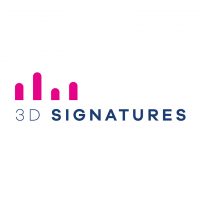
3D Signatures (TSXV:DXD; OTCQB:TDSGF; FSE:3D0) announced that clinical study results confirm that based on a swab from the inside of a patient’s cheek, its TeloView software platform has the ability to identify patients with Alzheimer’s disease (AD) and also distinguish between mild, moderate, and severe forms of the disease.
The results of this confirmatory study have been accepted for publication in the peer-reviewed Journal of Alzheimer’s Disease.
“Current diagnostic methods are not highly specific,” Dr. Sabine Mai, 3DS co-founder and principle inventor, said in a statement. “There is a significant need for an accurate, non-invasive biomarker that can diagnose AD and indicate disease progression, and we believe TeloView has the potential to answer that important call.”
The current study demonstrated that TeloView software platform clearly distinguished between AD and non-AD individuals, and between mild, moderate and severe AD, and is, therefore, a promising candidate as a non-invasive AD biomarker and monitoring tool.
The current confirmatory study involved a cohort of 44 age- and gender-matched healthy non-caregiver controls and 44 AD study participants. 3D telomeric profiles of buccal cells of AD patients and their non-AD controls were examined with participant information blinded to the analysis.
The company is currently exploring opportunities to expand the scope of its AD-related work with further clinical studies and fund that work through non-dilutive or independent financing arrangements, such as a joint venture.






